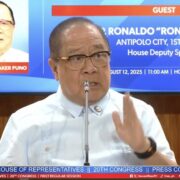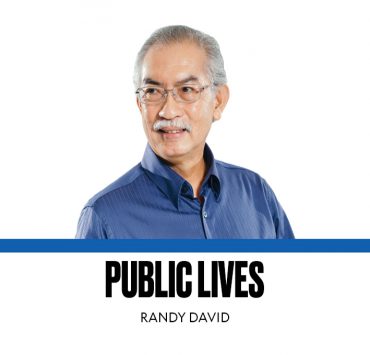Moment of reckoning

September 28, 2025 – Twenty-Sixth Sunday in Ordinary Time
Readings: Amos 6:1a, 4-7; Psalm 146, R. Praise the Lord, my soul!; 1 Timothy 6:11-16; Gospel – Luke 16:19-31
The Parable of the Rich Man and Lazarus is another timely gospel for us to reflect on given what we are going through as a nation.
First the rich man, in a certain sense there is a little bit of him in us. Then you have the assurance that there will be a final judgment when God’s justice will prevail.
Finally, you have Lazarus, the only time the name of the character in a parable is given.
The rich man, who is sometimes named as Dives, but this does not appear in this parable, was not an evil person.
He did not send away Lazarus the beggar and when he was suffering in the netherworld, he was concerned that his brothers would suffer the same torment and tried to ask that they be wanted.
Yes, he did not do anything bad. His sin was he did not do anything to help Lazarus. The classic sin of omission.
We are guilty of this, but perhaps not so much that we are not doing anything, but the question is are we doing enough?
This parable highlights one reality in our situation now that makes the question are we doing enough even more relevant.
While widespread poverty is a scandal in our country, what makes it more scandalous is the gap between the impoverished majority and the very small minority who control most of our resources.
And when these resources are stolen through corruption, double whammy! “The poor pay for corruption” (Pope Francis) so this a greater sin.
The way we saw contractors, engineers, politicians, etc. flaunt their wealth and live lavish lifestyles, they are not just like the rich man in the parable. They are worse—the worst.
If the rich man was condemned to the fires of hell, so will those who benefited from the corruption without remorse and consideration of how they deprived the poor of services and made them suffer the floods.
There will be a moment of rendering an account to and a judgment by God. This I am sure of and this is my source of hope.
And it is my prayer and hope that this does not happen only in the afterlife, although that is where the punishment is most severe, but even now as investigations take place. May the investigations lead us to the truth and the guilt be punished now.
Some doubt the seriousness of the government and the president in seeing this issue through its just conclusion. I don’t. I hope.
Just this past Thursday Secretary Rogelio Singson, a member of the Independent Commission for Infrastructure, gave a talk to the Caritas Philippines network. He is confident that their investigations on the alleged Bulacan anomalies will be completed in three months or less, he hopes, and charges will be filed. This will allow them to investigate other alleged anomalies soon.
To be transparent, I have been celebrating Mass in Malacañang every first Sunday since New Year’s Eve of 2023-2024. And there were at least four instances when the president would stay and discuss my homily with.
If I remember correctly, three of those conversations were about corruption and how to address it. I have had conversations with respected members of the Senate who are not original allies of the president, but they are convinced the president wants this brought to a just conclusion and corruption addressed.
This is why I believe, and I hope that this is a God-given opportunity for us, To address corruption—to curb it and eventually put an end to it and equally, if not more, important is to let justice be served. Punish the guilty with the severest possible penalty under the law and let restorative justice repay the greatest victims of this crime who are the poor.
But above all, my renewed faith and my strong hope are rooted in the lesson from today’s gospel. God’s justice will prevail in this life and in its fullness in the afterlife.
There is another source of this renewed faith and strong hope, Lazarus. The only time Jesus names a character in his parable. It is central to the message of the parable.
The name Lazarus is derived from the Hebrew name Eleazar, which means “God has helped.” This is one of the deepest lessons and meanings of this parable. Never doubt that God will help.
May this inspire us to act with conviction and courage that comes from this assurance that God will help.
But we must also make ourselves worthy instruments and channels of God’s help. Let all that we do and say come from this conviction.
This is my hope and prayer. May all who will lead us in this fight be blessed with this same grace: “The Spirit of the Lord is on me, because he has anointed me to preach good news to the poor. (Luke 4:18)

















